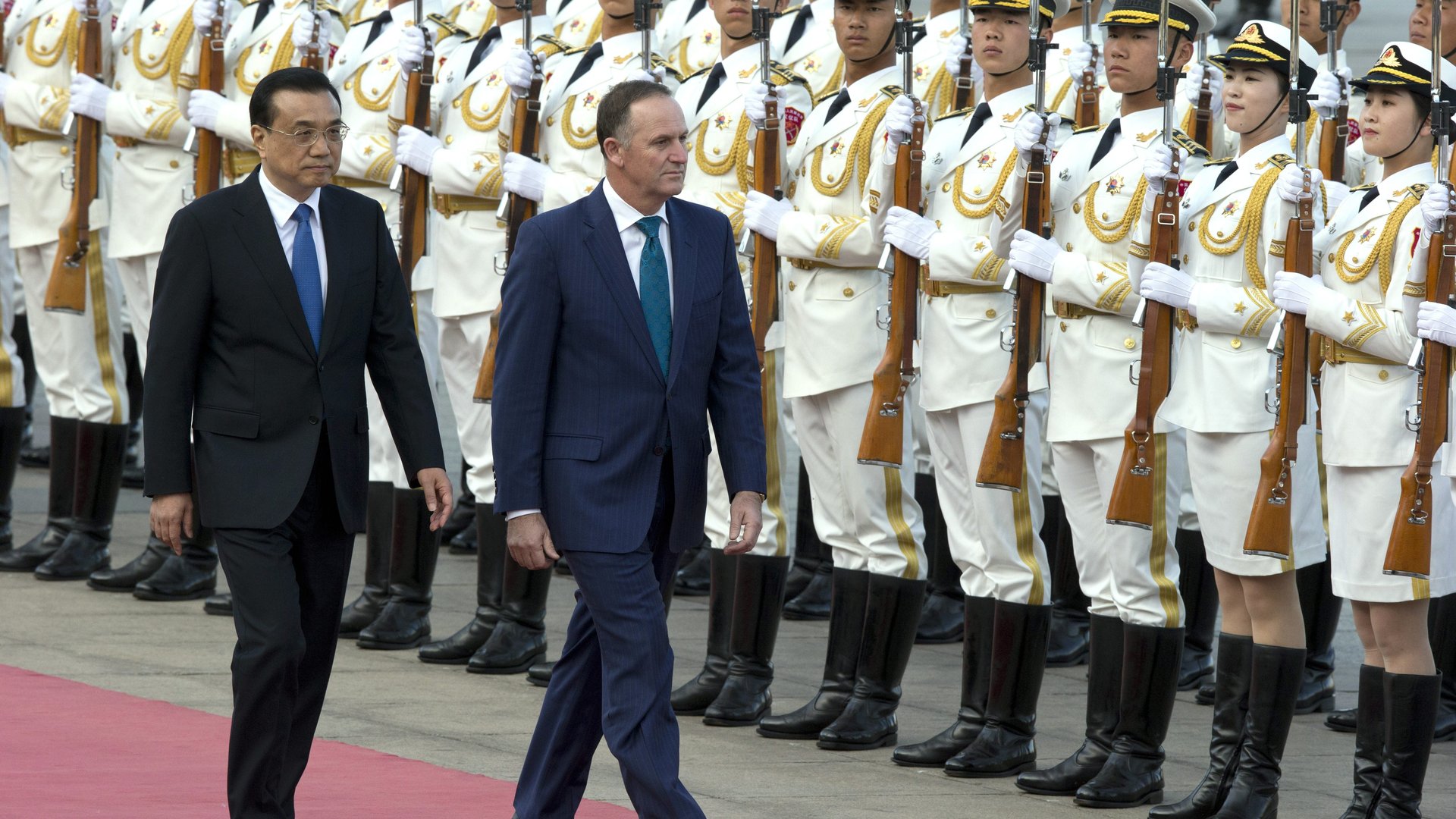China wants to extradite some of its citizens from New Zealand—and John Key is listening
New Zealand wants to sell China more dairy and meat products. The nation’s prime minister, John Key, led a trade delegation to China this week to discuss market access, tariffs, and partnership opportunities with the economic giant.


New Zealand wants to sell China more dairy and meat products. The nation’s prime minister, John Key, led a trade delegation to China this week to discuss market access, tariffs, and partnership opportunities with the economic giant.
Chinese president Xi Jinping, on the other hand, has other things in mind.
According to reports, up to 60 Chinese nationals suspected of corruption back home live in New Zealand with their ill-gotten gains. Xi wants the ability to extradite these economic fugitives back to China to face justice. He brought up the extradition list when he sat down with Key this week.
Key, who last August said New Zealand was not considering an extradition treaty with China, hinted at a possible reversal of this position this week.
“It’s possible,” he told reporters in China when discussing a formal extradition agreement. But, he added, ”We won’t extradite people to China unless they meet the condition that they wouldn’t be subjected to either torture or the death penalty.”
That would be difficult to ensure, noted Meg de Ronde, a campaign director with human rights group Amnesty International, in an interview with Radio New Zealand Wednesday (April 20).
“Any assurances would have to be treated with great caution, given that China is unwilling to open itself to scrutiny on how many people it executes every year, we would be very cautious about allowing people to go back to a justice system which we already know is very unjust and where people are routinely tortured and denied their basic rights.
China’s justice system is one that in practice has no presumption of innocence or expectation of a fair trial. People face very harsh prison conditions, they face forced labor, arbitrary detention, enforced disappearances—and of course the use of torture is rife in criminal investigations in China.”
Another problem is the possibility that some of China’s extradition requests could be fueled more by politics than a desire for justice. Xi’s war on corruption has at times seemed more intent on rooting out leadership rivals than reforming a broken system.
New Zealand’s business leaders—some of whom joined Key on this week’s delegation—are eager for better access to China’s vast market. In 2008 the nations signed a free trade agreement, but its limitations have held back commerce. For instance, dairy volume safeguards in the agreement often kicked in within the first few weeks of a calendar year—meaning higher tariffs were applied to any products sent afterward. And there are still trade barriers in some areas, like the chilled-meats market, which holds great potential for New Zealand.
Such access serves as a bargaining chip for Beijing. So do better export conditions China recently negotiated with Australia. Unless New Zealand can get similar arrangements, its products won’t be able to compete as well against those of its bigger neighbor. Xi, of course, is well aware of this.
New Zealand has attracted many Chinese with an immigration program that rewards foreign investors with residency. No doubt the lack of an extradition treaty has been a selling point, as well.
If Key makes a strong push for an extradition agreement with Beijing, he’ll face political consequences back home. His opponents in the Green Party have already gone on the offensive.
“The prime minister needs to park the extradition issue for a while so the issue of trade does not become reliant on China getting an extradition treaty,” said Kennedy Graham, a Green Party spokesperson. “The last thing we want is a ‘milk for people’ situation.”